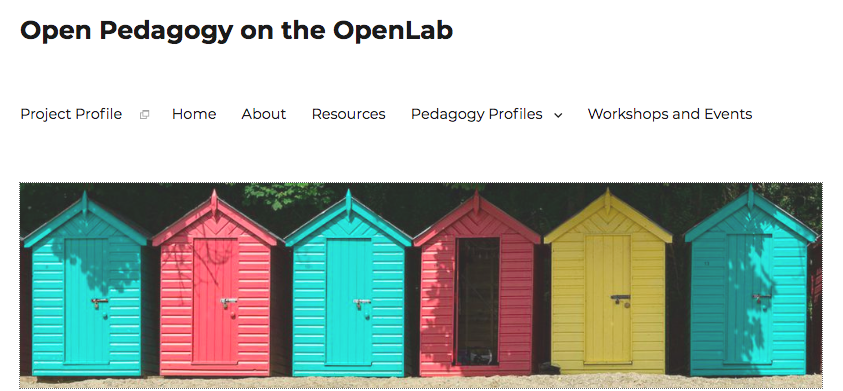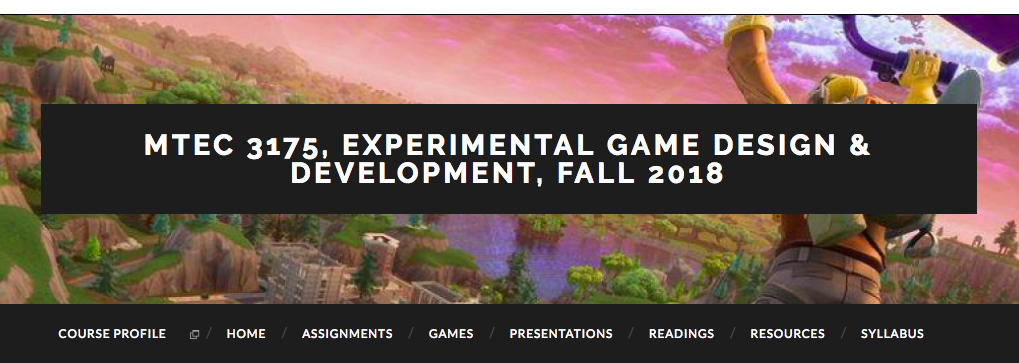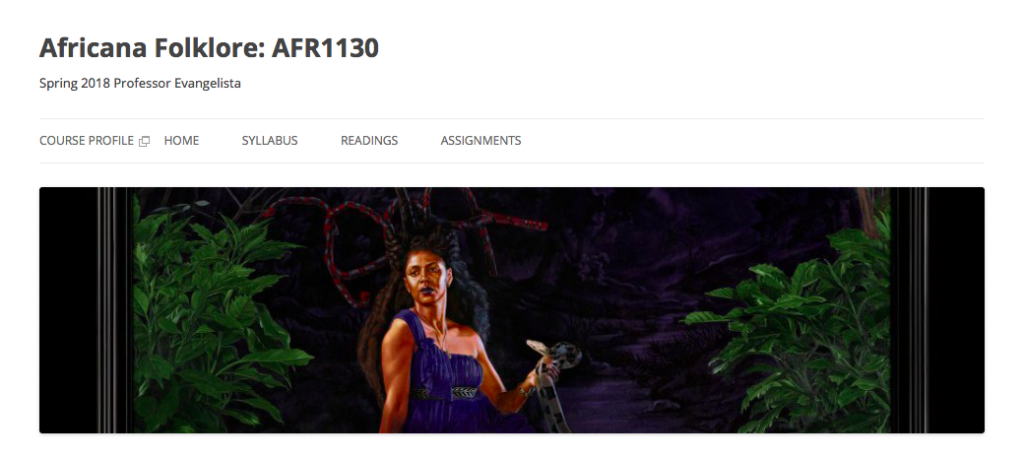This week we’re spotlighting The Ambassadors Club, a group that aims “to provide opportunities for student officers to learn and hone leadership skills, with an emphasis on event planning and event management”. The Club accomplishes this by helping to plan and staff events for the HMGT department and around the college, “with the intent of fostering and supporting a welcoming and professional environment”. … Continue reading this post
Author: Kristen Hackett
In the Spotlight: Open Pedagogy on the OpenLab
 This week we’re spotlighting Open Pedagogy on the OpenLab, an in-house site managed by the OpenLab Community Team that’s dedicated to sparking and cultivating discussion, and facilitating the sharing of ideas, materials and practices related to open digital pedagogy (ODP) amongst City Tech faculty and staff.… Continue reading this post
This week we’re spotlighting Open Pedagogy on the OpenLab, an in-house site managed by the OpenLab Community Team that’s dedicated to sparking and cultivating discussion, and facilitating the sharing of ideas, materials and practices related to open digital pedagogy (ODP) amongst City Tech faculty and staff.… Continue reading this post
In the Spotlight: MTEC 3175, Experimental Game Design & Development
 This week we’re spotlighting Professor Boisvert’s fall entertainment technology course, MTEC 3175, Experimental Game Design & Development. This course is a “hands-on studio” where students explore various complexities of gameplay development and design through creating prototypes. In short, the course touches on technical game construction, to aesthetics and design (character development, level design), to user experience and more.… Continue reading this post
This week we’re spotlighting Professor Boisvert’s fall entertainment technology course, MTEC 3175, Experimental Game Design & Development. This course is a “hands-on studio” where students explore various complexities of gameplay development and design through creating prototypes. In short, the course touches on technical game construction, to aesthetics and design (character development, level design), to user experience and more.… Continue reading this post
In the Spotlight: 25,000+ Members!
At the start of this semester, the OpenLab hit a new milestone, reaching 25,000 members (with hundreds more joining since then)! Not too shabby! We,the OpenLab Team, believe this is a moment worth celebrating, and are excited for the opportunity to highlight your accomplishments over the past seven years.… Continue reading this post
In the Spotlight: Welcome Back & The Open Road
 Greetings City Tech community, and welcome back to those of you who were away this summer! As you get back into the swing of things, be sure to join and check out the Open Road. This site houses a number of important resources that can help you get (re)acquainted with the OpenLab.… Continue reading this post
Greetings City Tech community, and welcome back to those of you who were away this summer! As you get back into the swing of things, be sure to join and check out the Open Road. This site houses a number of important resources that can help you get (re)acquainted with the OpenLab.… Continue reading this post
The Month on the OpenLab: 1.7.23
On August 15, version 1.7.23 of the OpenLab was released. It included updates for all themes and plugins, as well as for WordPress and BuddyPress, the software that powers the OpenLab. The release also included a few new features and plugins.… Continue reading this post
Summer Greetings from the OpenLab!
Greetings from the OpenLab and congratulations to all on the closing of another successful academic year!
While our weekly “Spotlight” blog series will go on hiatus for the season, we wanted to remind you of the sites we featured this past year and encourage you to check them out if you haven’t already done so.… Continue reading this post
This Month on the OpenLab: 1.7.21
On May 17, we released version 1.7.21 of the OpenLab. This was a small release, but it included a few new plugins. One is the premium version of the PDF Embedder plugin, which adds functionality that should be useful to many OpenLab members, including a download button for embedded PDFs, the ability to show active links in PDFs, and a better views on mobile.… Continue reading this post
In the Spotlight: OER for Africana Folklore (Part 3 of 3)
 As the final post of our 3-part series on OERs, this week we’re spotlighting Professor Javiela Evangelista’s OER for Africana Folklore: Afr1130. As mentioned the last two weeks, the general description of OERs seems straightforward – open and freely accessible educational resources.… Continue reading this post
As the final post of our 3-part series on OERs, this week we’re spotlighting Professor Javiela Evangelista’s OER for Africana Folklore: Afr1130. As mentioned the last two weeks, the general description of OERs seems straightforward – open and freely accessible educational resources.… Continue reading this post
In the Spotlight: In Conversation: An Eng 1101 OER Reader (Part 2 of 3)
 In continuation of our focus on OERs, this week we’re spotlighting In Conversation: An OER Reader, a joint project of Professors Sarah Parulo and Johannah Rodgers. As mentioned last week, the general description of OERs seems straightforward – open and freely accessible educational resources.… Continue reading this post
In continuation of our focus on OERs, this week we’re spotlighting In Conversation: An OER Reader, a joint project of Professors Sarah Parulo and Johannah Rodgers. As mentioned last week, the general description of OERs seems straightforward – open and freely accessible educational resources.… Continue reading this post




